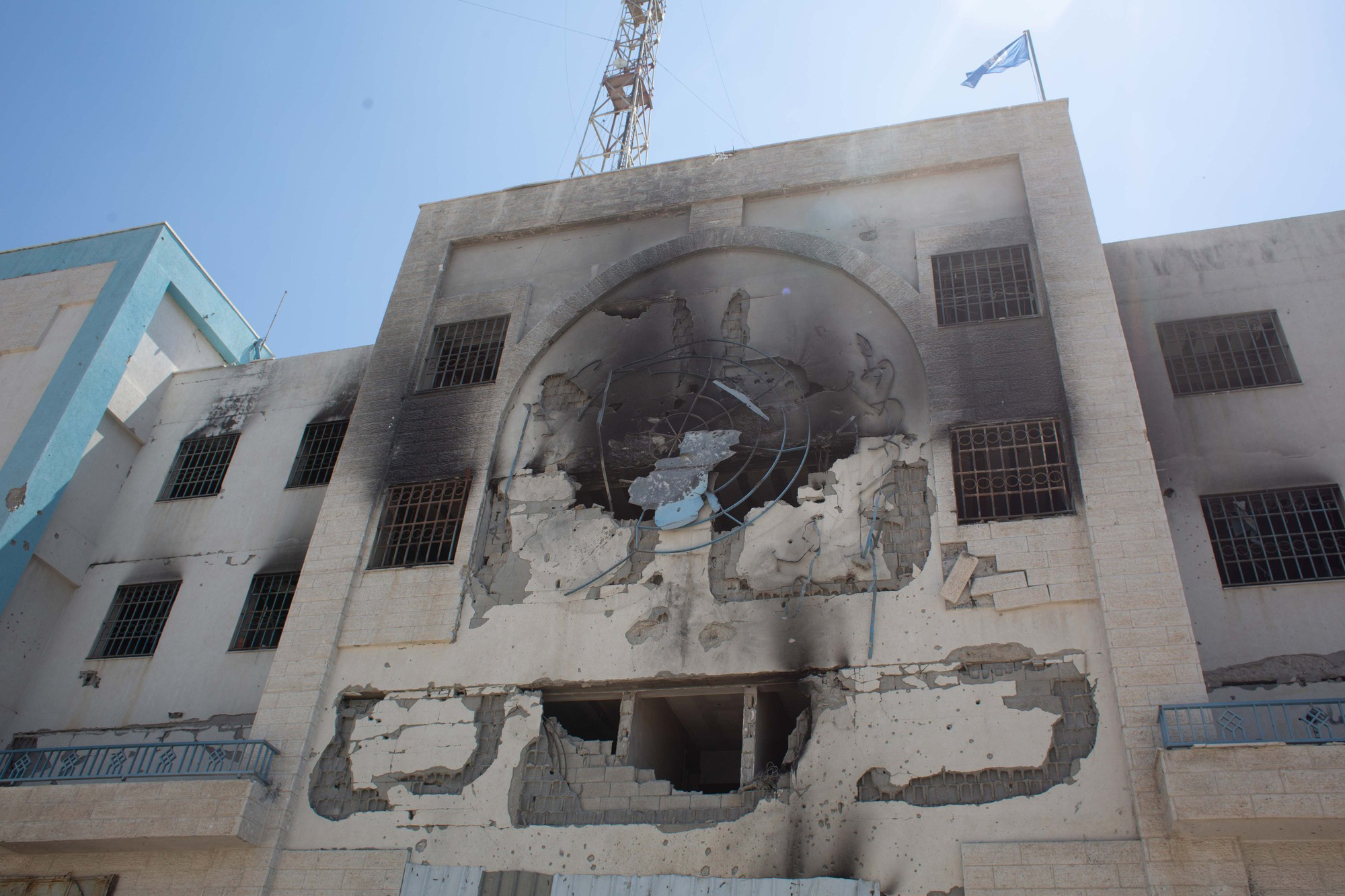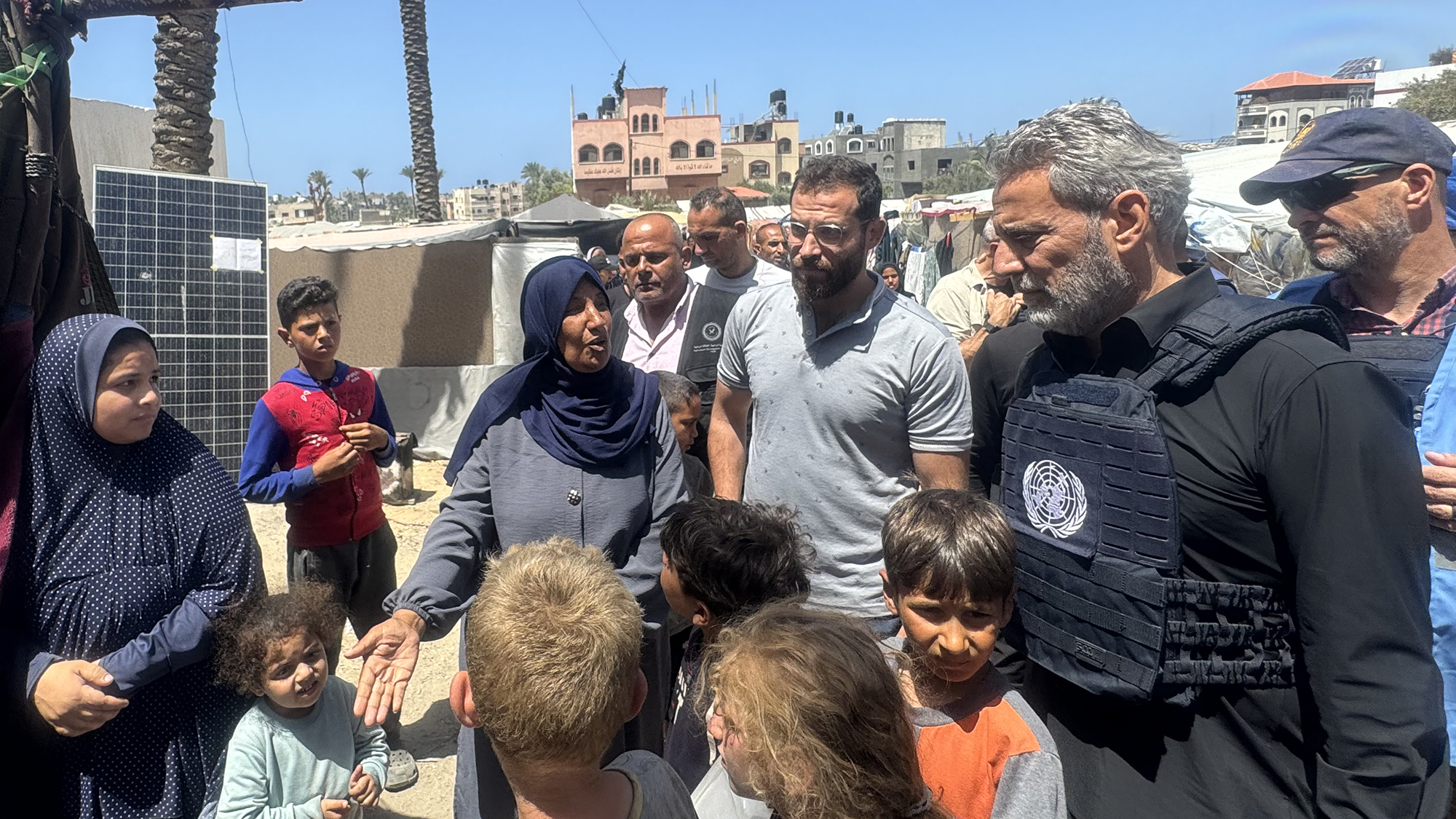Two months after Hurricane Beryl, one of the most destructive storms in recent memory, residents of the Caribbean’s once-idyllic Grenadines Islands are still battling to rebuild their lives and livelihood. With winds up to 240 km/h, Beryl devastated essential infrastructure and dwellings in many of these little island towns, displacing thousands. Amid the aftermath, stories of strength and resilience emerge from the rubble. As families continue to pick up the pieces, the International Organization for Migration (IOM) is working with the Government of Saint Vincent and the Grenadines, as well as national and international partners to provide emergency relief.
Humanitarian Aid
El Niño is hitting at a time of already significant unmet needs, with 13.6 million people currently experiencing crisis levels of food insecurity in affected countries. WFP is supporting governments in mitigating the impact of El Niño on food security in the region.
Almost ninety percent of the population of Gaza – 1.9 million people – have been displaced at least once by evacuation orders issued by Israeli Defense Forces, searching for something that does not exist: safety. The war in Gaza has rendered pregnancy unsafe for women. Ongoing hostilities, repeated evacuation orders, a breakdown in public order and safety, and the challenges of reaching people in need are preventing an effective humanitarian response. The United Nations Population Fund (UNFPA) and partners continue to provide support despite the insurmountable circumstances, but the only way to ensure that people have access to the basics to survive is with an immediate and sustained ceasefire.
In Kharkiv, Ukraine, UNOPS and the government of Japan are working to restore housing damaged in 2022, bringing hope and a sense of normalcy to a city still under fire.
On the night of 10 September 2023, Storm Daniel caused devastating flooding in Libya's northeast region, particularly in the city of Derna. Thousands lost their lives, and tens of thousands were displaced. The UN and other organizations provided urgent humanitarian support after the flooding. Following the disaster, the United Nations Office for the Coordination of Humanitarian Affairs (OCHA) and a local photographer and filmmaker, Mohammed Emnena, documented the community's resilience in the face of tragedy.
This year’s theme for World Humanitarian Day (WHD) underscored the critical importance of respecting international humanitarian law, which requires the protection of civilians and the humanitarian workers who assist them during war. WHD features a global call to #ActForHumanity and protect civilians, which resonates strongly with the ongoing humanitarian situation in Ukraine. The humanitarian community in Ukraine organized a photo exhibition depicting the war’s impact on civilians and workers near the front line. The United Nations Office for the Coordination of Humanitarian Affairs (OCHA) features a selection of these images.
23-year-old volunteer Sarah Al Shamali and her colleagues are providing practical support, from educational programmes to distributing safe water, and cultivating a spirit of solidarity among Gaza's youth.
Amara and Aisha, ages 16 and 15, are from Eastern Ethiopia. Both decided to seek better economic opportunities in Saudi Arabia, inspired by a neighbor's sister who had found financial success there. They enlisted the help of a local smuggler to travel through Somalia and Yemen to reach Saudi Arabia, with the promise of finding work as maids to gradually pay off the smuggling fees. They escaped the smugglers in Bossaso, on the northern coast of Somalia, and found refuge at a local Migration Response Centre (MRC) run by the International Organization for Migration (IOM).
Ibrahim Abdulrahman was the top scorer in Sudan's high school exams in 2020. The war in Sudan has disrupted his dream of becoming the country's Minister of Agriculture and the education of millions of young people in a country where more than 90% of school-age children have no access to formal education. More than 10 million people have fled their homes in Sudan since the outbreak of war in 2023. The unprecedented influx has strained community resources and public services in Sudan's White Nile State. UNHCR is providing life-saving assistance to displaced people, including food, water, health care and cash.
2023 marked the deadliest year on record for humanitarian workers and 2024 could be even worse. Despite 75 years of international law to protect civilians and aid workers, violations continue. Civilians and humanitarian workers are paying the price with their lives, while those responsible escape justice. On World Humanitarian Day, 19 August, join our call to end these violations and the impunity that enables them. It's time for those in power to #ACTFORHUMANITY.
The war in Ukraine continues to take a heavy toll on millions of women and girls, as well as on those providing essential services on the front line and beyond. Find out what motivates the women in the health force – people who dedicate their lives to helping others survive, recover and find moments of joy – and hear their personal reflections on life and work during war.
A recent satellite analysis by the Food and Agriculture Organization of the United Nations (FAO) reports widespread damage to agricultural infrastructure across Gaza, including damage to over 57 percent of total cropland, the destruction of 33 percent of greenhouses and significant losses in wells and solar panels. Farmers like Yousef Al-Masri and Mohamed El Yaty are essential to Gaza's food supply. However, they and other farmers, herders and fishers in the Gaza Strip are struggling to maintain their agricultural assets, sources of nutrition and income due to the escalation of hostilities and lack of availability and access to critical agricultural inputs.
“I think if there is hell on Earth, it's Gaza.”
Muhannad Hadi knew that humanitarian work was his calling from an early age. Now UN Deputy Special Coordinator and Humanitarian Coordinator for the Occupied Palestinian Territory, he is devoting himself to helping to alleviate the unimaginable suffering in Gaza.
“They told me that agony, 24/7. They told me what they go through from the morning until they drop asleep, out of exhaustion. And I promised that I will tell the story.”
The UN estimates that the ongoing conflict in Gaza has displaced up to 1.9 million people – 90% of the population - many of whom have fled multiple times. In this episode of Awake at Night, Muhannad Hadi reflects on the horrendous conditions in Gaza, the importance of having a supportive family, and how his time volunteering in Jordan led to a lifelong humanitarian career.
The ongoing war in the Gaza Strip is making health care especially difficult for pregnant women and children. The high cost of living makes essentials like baby clothes unaffordable. At 20$ for one piece of baby clothes, these are usually not affordable for the most vulnerable families, who were often displaced 4 or 5 times, carrying only what they had on their backs. UNICEF, with partners, is making a significant difference in these communities by distributing 1,000 baby clothing kits and essential supplies, providing a lifeline of crucial assistance.
World Food Programme teams in the Caribbean are assessing the devastating aftermath of Hurricane Beryl, providing crucial humanitarian aid to communities severely impacted by the storm's destructive force.














